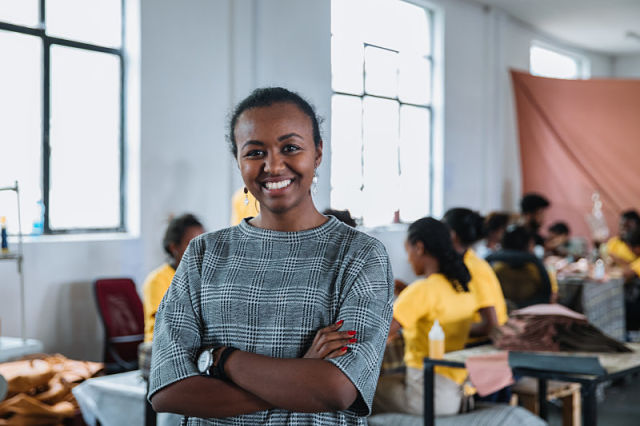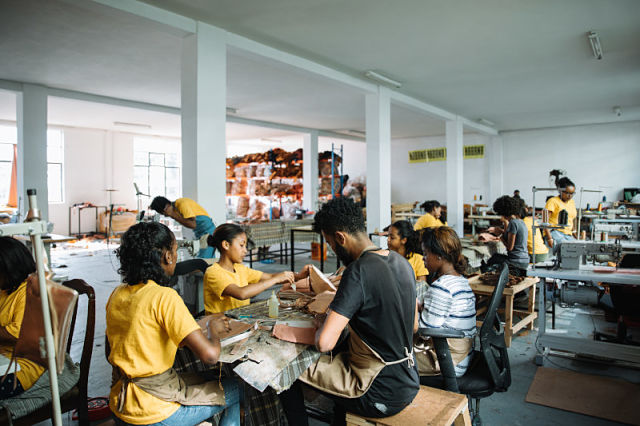 Semhal Guesh, CEO of Kabana Leather, an Ethiopian company that produces a variety of handmade leather products. (How We Made It In Africa)
Semhal Guesh, CEO of Kabana Leather, an Ethiopian company that produces a variety of handmade leather products. (How We Made It In Africa)
We speak to Semhal Guesh, CEO of Kabana Leather, an Ethiopian company that produces a variety of handmade leather products.
1. How did you come up with the idea to start Kabana Leather?
The concept was born while I was making hand bracelets from leather waste while at university. After two or three failed attempts at running other businesses, I established Kabana in 2017.
Initially, it was just a hobby. I am an architect by profession and love designing. My passion for design led me to make leather bags. My hobby became a business when I employed someone and saw the impact it made on their life. I quit my job at an architectural firm to run Kabana full-time.
We produce products under our own brand Kabana and also have a contract manufacturing division which makes items for international labels. We used to be 100% focused on the export market until Covid-19 hit and it tested us economically. Afterwards, our target market partially shifted towards the local market. Our customers are people and corporates who source ethically produced goods.
2. Give us an overview of your product range.
We have tote bags, gym bags, wallets and work bags.
We are currently also producing PPE products, such as face masks and scrubs, with support from the Mastercard Foundation, but this is temporary.
3. Where do you source your raw materials?
Close to 92% of our raw materials are locally sourced; these include leather from sheep and goats, textiles and canvas. The remaining 8% of raw materials are imported from Egypt, the US and Taiwan, including zippers, buckles and accessory hardware. We source leather directly from the factories and produce it according to our colour and texture specifications. We choose these factories based on our requirements regarding their sustainability, environmental footprint and zero child labour practices.

Employees at the Kabana Leather production facility. (Kabana Leather)
4. Describe your product development process.
For our Kabana brand, we try to have launches twice a year. Design starts with a mood board with colours, material concepts and design. Usually, I work with my team to develop patterns and designs. We make samples and get feedback on these. We then manufacture our selection for the launches.
On the outsourced manufacturing side, we obtain designs from buyers who want products made in Ethiopia. We make samples using their designs with potential alternatives. The approval process usually takes several iterations and discussions; once they approve a sample, we go ahead and manufacture based on purchase orders.
5. Where do you sell your products?
Currently, the bulk of our sales are to the US and we send small consignments to Europe but that has not expanded as much as we’d like. We also sell small quantities to Rwanda and South Africa.
Read the full Q&A at howwemadeitinafrica.com »
—
Join the conversation on Twitter and Facebook.

























